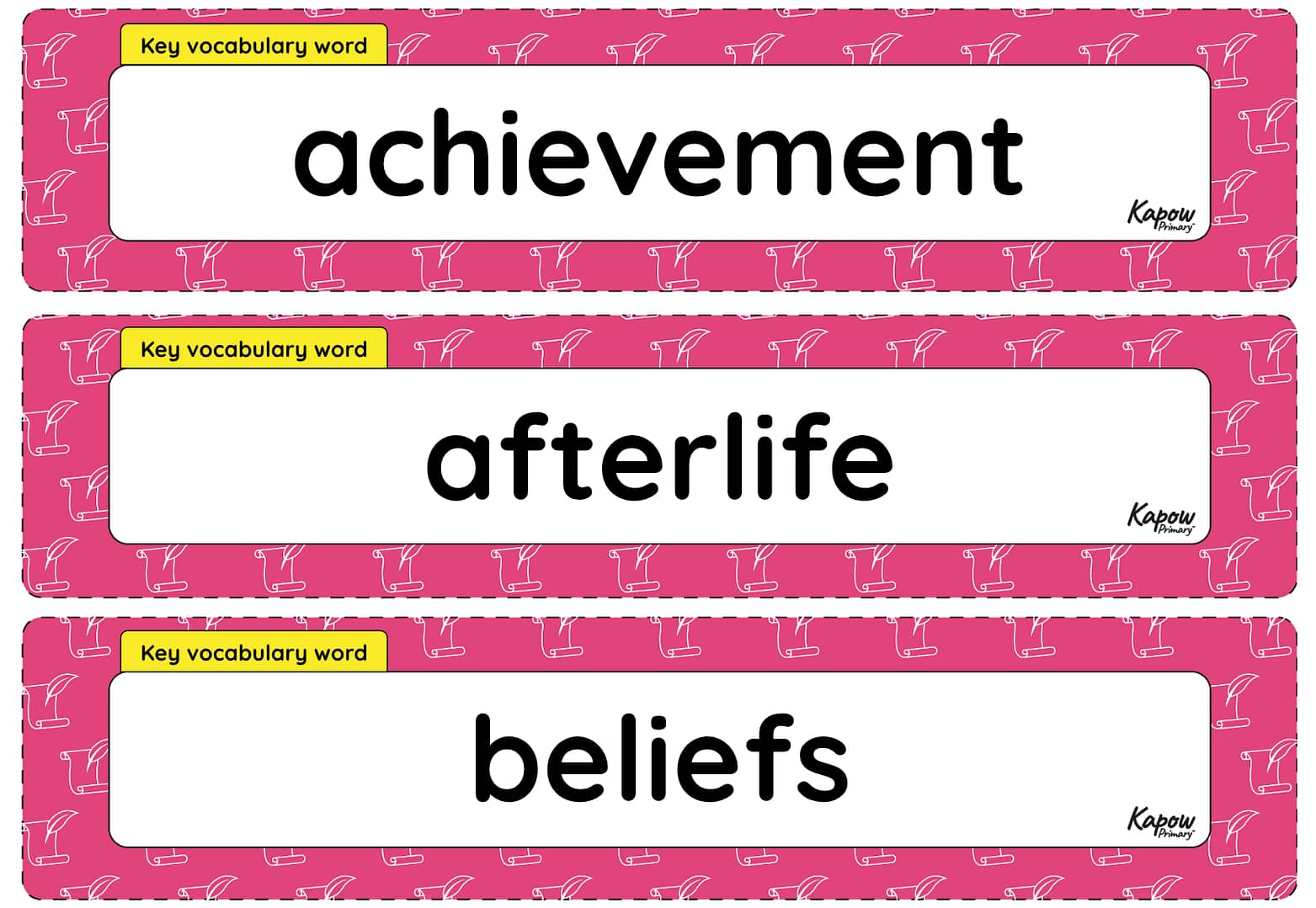*New* What was important to ancient Egyptians?
Use this unit hub to inform your medium-term plan and to navigate to related resources.
New statutory RSHE guidance is here. We’re creating our brand new RSE & PSHE scheme ready for September 2026. Learn more
Please note
This new unit for 2024/25 includes a new overview of ancient civilisations and greater opportunities for the children to explore sources from ancient Egypt to deepen their understanding. The Archived unit: What did the ancient Eqyptians believe? will no longer be updated.
Unit outcomes
Pupils who are secure will be able to:
- Identify where and when ancient civilisations first appeared.
- Ask historically valid questions about sources.
- Identify Ancient Egypt’s location and its key geographical features.
- Explain why the River Nile was important to ancient Egyptians.
- Explain the significance of the Rosetta Stone.
- Explain the importance of gods and goddesses to people in ancient Egypt.
- Analyse mummification’s connection to ancient Egyptian beliefs about the afterlife.
- Decide what was important to people in ancient Egypt.
Suggested prior learning
Y3/4 (B): How have children’s lives changed?
Get startedLessons
Y3/4 (B): Lesson 1: Where and when did the first civilisations appear?
- To develop questioning skills using sources about ancient civilisations.
Y3/4 (B): Lesson 2: Why was the River Nile so important to ancient Egyptians?
- To explain the significance of the River Nile to ancient Egyptian civilisation.
Y3/4 (B): Lesson 3: How do we know so much about ancient Egyptians?
- To evaluate the importance of ancient Egyptian hieroglyphics.
Y3/4 (B): Lesson 4: What do sources suggest about religious beliefs in ancient Egypt?
- To use a range of sources to explore the importance of gods and goddesses in ancient Egypt.
Y3/4 (B): Lesson 5: What did people in Ancient Egypt believe happened after death?
- To investigate beliefs about the afterlife in Ancient Egypt.
Y3/4 (B): Lesson 6: Who ruled ancient Egypt and what happened to them when they died?
- To evaluate continuity and change by identifying what happened to the pharaohs when they died.
Key skills
Related content
Unit resources

Knowledge organiser – History Y3: What was important to ancient Egyptians?
Aimed at pupils, two pages providing key facts and definitions from the unit ‘What was important to ancient Egyptians?’.

Vocabulary display – History Y3/4 (B): What was important to ancient Egyptians?
A display version of the vocabulary from the ‘What was important to ancient Egyptians?' unit.
Cross-curricular opportunities
Geography: Human and physical geography, Geographical skills and fieldwork
Religion and worldviews
English: Spoken language

